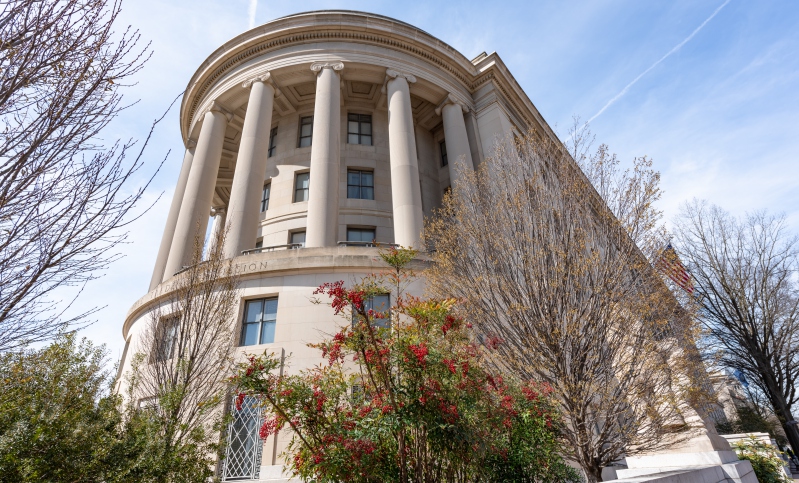
Scholar proposes a no-collusion rule to limit tacit collusion.
Can the government stop companies from increasing prices solely because competitors increased their prices?
In a recent paper, Brendan Ballou, a U.S. Department of Justice trial attorney, argues that the Federal Trade Commission (FTC) needs to do just that. Ballou asserts that a new method of price-fixing regulation can reduce tacit collusion. He proposes a “no-collusion” rule under which no business can raise “its prices solely because a competitor has done so.”
Ballou asserts that, in a world of concentrated industries, it is easier for companies to use a range of public information—typically “public announcements, investments, and algorithms”—to determine how their competition will change their prices, even without direct communication with their rivals.
He explains that tacit collusion is harmful because companies can focus their pricing strategies on rival’s pricing, instead of demand. When this happens in a consolidated market, consumers may pay a higher price for the same quality product.
Ballou cites two examples in the airline industry, an industry which has experienced drastic consolidation in recent years as four airlines now generate over 60 percent of domestic business. One example occurred when American Airlines publicly announced new charges for checked bags, and United and U.S. Airways immediately did the same. In another instance, the four biggest airlines increased change fees to exactly $200 within two weeks of each other.
Ballou argues that such instances of tacit collusion are different from standard price fixing, where competitors engage in explicit agreements to set prices. Prosecutors can readily deter explicit agreements through antitrust enforcement actions under the per se rule of the Sherman Act. Under the per se rule, the government only needs to prove that an agreement exists to show that an antitrust violation occurred. The company is not permitted to defend its actions.
But the per se rule does not apply to tacit collusion. The answer in these cases, Ballou says, is for the courts to accept a no-collusion rule. Such a flat ban on any collusion—both explicit and tacit—would give the government a tool it needs to reduce the likelihood that companies can raise prices solely based on their competition, according to Ballou. It would allow the FTC to obtain monetary damages, issue injunctions, and require monitoring systems for competitors’ pricing algorithms.
Some large companies have so many products that they price according to an algorithm. Ballou’s concern is that these algorithms may track only their competitors’ price, automatically adjusting their price when a competitors’ price increases. In one example, an independent Amazon bookseller’s science textbook rose to a price of $23 million because the seller used an algorithm to price the book slightly higher than the exact same book from a different seller, leading to an absurd price war.
The FTC’s current policy is that matching a competitor’s price is acceptable, unless it is based on an “agreement or coordination with a competitor.” Ballou’s proposal would strengthen the FTC’s policy. Competition decreases when companies base their prices solely on their competitors, leading to increased profits without any innovation, hurting consumers and workers alike.
According to Ballou, providing the FTC with greater opportunities to prosecute tacit collusion is important because the Justice Department is currently unable to bring tacit collusion cases after the U.S. Supreme Court’s decision in Matsushita v. Zenith Radio.
Although the Court has eliminated the Justice Department’s ability to prosecute tacit collusion under the Sherman Act, the FTC can use the Federal Trade Commission Act to prosecute tacit collusion because this latter statute contains no requirement that a collusive agreement exist. Ballou argues the FTC should use the “unfair methods of competition” section of the FTC Act to combat tacit collusion.
Critics have argued that Ballou’s proposal would be difficult to enforce because competitors could easily lie about why they raise prices.
Ballou argues that lying is harder than it appears. He only targets very specific instances where nothing else could have impacted the pricing decision except for the competitor’s price. Moreover, he argues that courts would evaluate the validity of any purported justifications and that companies would struggle to add legitimate reasons to each price increase before the change occurs.
Ballou concedes that his proposal would not stop all or even most tacit collusion. But, he argues it will slow down the most egregious instances of tacit collusion. He asserts that preventing companies with oligopoly power from adjusting prices based solely on the competition will reduce prices for consumers and force competitors to compete, not coordinate. He notes that the government should not permit price fixing just because competitors did not explicitly make an agreement to collude with each other.



